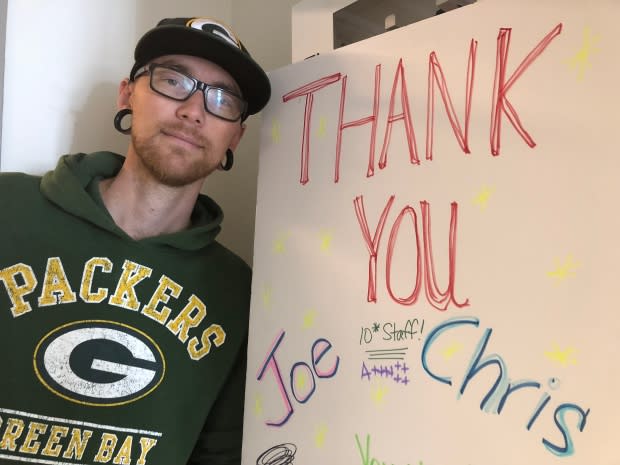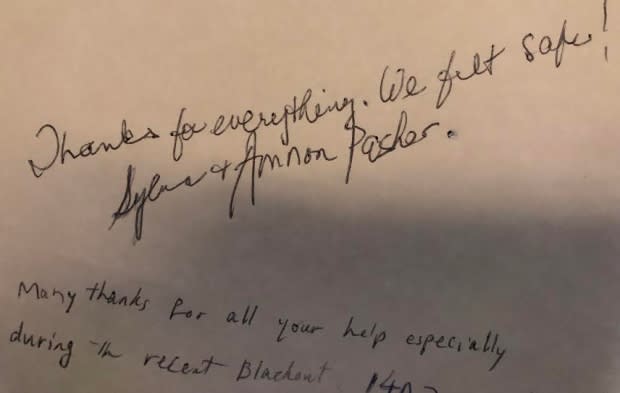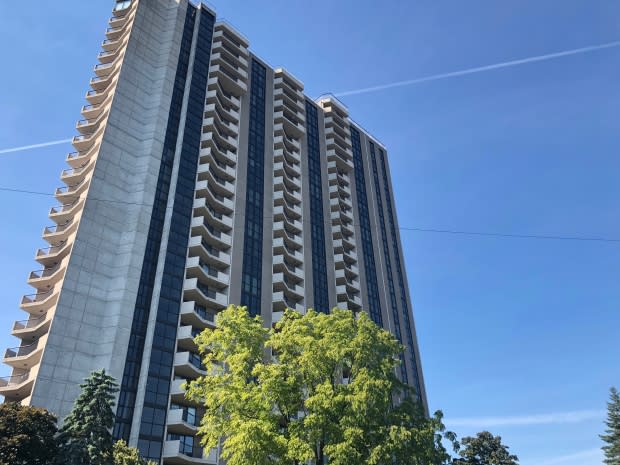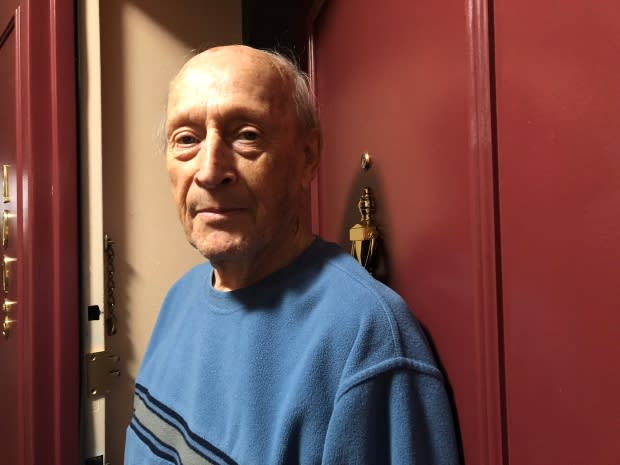'Our heroes': Superintendents praised for hard work during blackout
As Joe Mutchmore and Chris Tessier walked bleary-eyed through the lobby of their Lincoln Heights condominium Monday, they were treated like rock stars.
One woman even curtseyed before the two men, the head and assistant superintendents at the 29-storey Park Place tower.
"They're our heroes, eh?" said the woman, who lined up to sign a makeshift poster thanking the pair for going the beyond the call of duty during a lengthy post-tornado blackout.
When a tornado ripped through the Merivale transformer station on Sept. 21, tens of thousands of residents in Ottawa's west end were left without power — including hundreds of tenants, mostly seniors, who live in the Richmond Road highrise.
As it grew dark, the generator in the basement turned on. But it only supplied enough electricity to keep the four elevators working and to provide emergency lighting in the hallways.
Everyone in their units needed flashlights and candles to see.

Knocked on 'every single door'
Mutchmore and Tessier, both 31, said they realized they couldn't just sit back and wait for the power to come on because many residents would be confused and scared.
"I wanted to make sure everyone was okay," said Mutchmore. "If you're sitting in your living room and you have no power, and it's pitch black and your flashlight is on the other side of the unit, who knows what you could trip over?"
The pair have a checklist in the event the building loses power that includes inspecting for flooding and ensuring certain mechanical devices are turned off.
What they did next, however, wasn't on that list.
Tessier and his girlfriend started checking on all the building's residents, starting on the 29th floor.
"We checked on every single door, making sure everyone was OK," Tessier said. "We have seniors who rely heavily on wheelchairs or caregivers, so that was high on our list as a priority."

'It was nerve-racking'
Rosanne Albert said she appreciated the knock on her door of her second-floor unit, especially since her flashlight was in her car.
"At the time it was nerve-racking," she said. "It's so nice to know that they were checking on all of us, telling us that everything is going to be OK. It was a real sense of relief knowing that Joe and Chris are around. It gives you that bit of confidence."
Since the generator's power wasn't enough to keep the inner front door locked, Mutchmore sat there around the clock, ensuring only owners, friends and family got inside.
"I knew I was in good hands with Chris and Joe, just because I am alone," said 89-year-old Garth Wachorn, who lives on the 10th floor.
Wachorn came down several times to talk and joke with Mutchmore and his girlfriend, who'd joined him on the security detail.
"It's bad enough that you're alone, but when you're alone and there's a crisis, it's worse. But I never felt isolated."
Generator eventually died
Late Saturday afternoon, with tenants worrying about food spoiling, the two superintendents organized a barbecue. Fifty people came down for the impromptu dinner.
The generator only had enough diesel to last 24 hours, however, so Mutchmore started calling the supplier hours before it ran out, only to be told they were trucking in fuel from Montreal and they'd be there when they could.
At 4 a.m. Sunday, the generator ran out. The elevators stopped working, and water was no longer being pumped to the middle and upper floors.
With the help of others, Mutchmore and Tessier began delivering jugs of water to residents.
The diesel eventually arrived at around 11 a.m.

Neither of them got much sleep during the 50-hour blackout. Mutchmore, who was already battling a cold, said he survived on "lots of coffee" provided by residents who went on frequent "coffee and tea runs."
Tessier wasn't at all surprised that the building's residents helped out during the blackout.
"We care about each other. We have our day-to-day operations, but at the end of the day, when we all have the same hurdle, we all came together," he said.
"It was just pure community. That's what it was — community."


